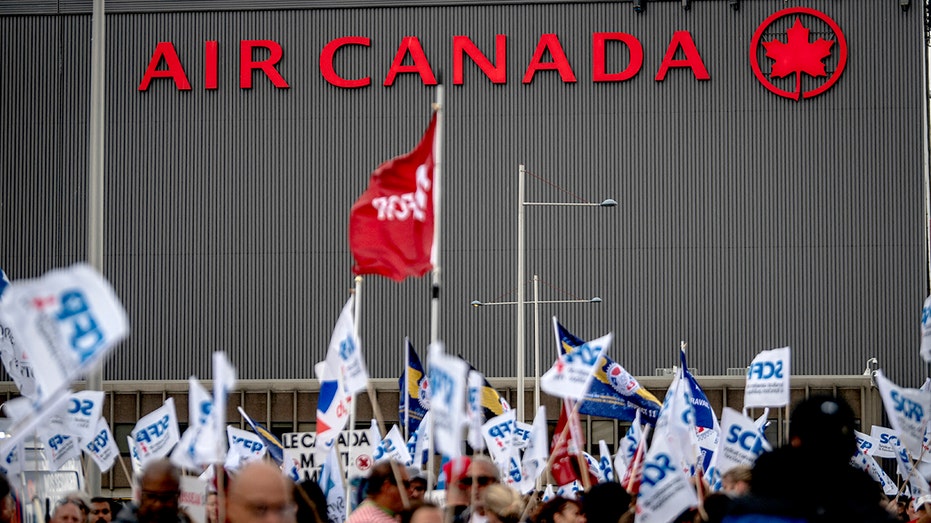Air Canada’s flight attendant union reached a tentative agreement with the airline, paving the way for flights to resume after striking members defied a government order to return to work, forcing a temporary shutdown of operations.
“We have a tentative agreement we will bring forward to you,” the Canadian Union of Public Employees (CUPE) said in a Tuesday Facebook post announcing the end of the strike.
Air Canada simultaneously announced that it would gradually restart its operations on Tuesday after saying it had reached an agreement with the CUPE through a process overseen by a mediator. However, the carrier warned that restarting a major carrier is “a complex undertaking” and that it may take at least a week to fully restore operations.
AIR CANADA STRIKE CONTINUES AS FLIGHT ATTENDANTS REJECT GOVERNMENT RETURN-TO-WORK ORDER
“The suspension of our service is extremely difficult for our customers. We deeply regret and apologize for the impact on them of this labour disruption,” Air Canada CEO Michael Rousseau said. “Our priority now is to get them moving as quickly as possible.”
While the first flights are scheduled for Tuesday evening, customers are advised that the airline’s return to full, regular service may require seven to 10 days as aircraft and crew are out of position. The carrier said some flights will be canceled over that period until the schedule is stabilized.
Talks with a mediator began on the condition that the union agreed to send Air Canada’s 10,000 flight attendants back to work right away, so the airline could restart flights on both Air Canada and Air Canada Rouge, which have been grounded since Aug. 16.
UNITED AIRLINES, JETBLUE PARTNERSHIP GETS TRUMP ADMIN CLEARANCE TO FLY
Unionized Air Canada flight attendants formed picket lines outside major airports shortly after 1 a.m. Saturday to fight for better pay and working conditions.
The union, which represents over 10,000 flight attendants at Air Canada and Air Canada Rouge, said its members voted 99.7% in favor of strike action earlier this month after it said there had been months of failed negotiations “due to the airline’s refusal to fairly negotiate on key issues like unpaid work, work rules, and poverty-level wages.”
The union argued that entry-level Air Canada flight attendants’ wages have increased only 10% – $3 per hour – in the past 25 years, while inflation has increased 169% and the average full-time wages in the country have increased 210% during the same period.

CUPE also said its members are not paid “for a significant portion of their time on the job,” such as when they perform critical safety checks, attend to onboard medical and safety emergencies and assist passengers with boarding and deplaning.
As soon as the strike ensued on Saturday, the carrier grounded most of its 700 daily flights and stranded more than 100,000 passengers.
Prime Minister Mark Carney’s government intervened Saturday, asking the Canadian Industrial Relations Board (CIRB) to impose binding arbitration. Canadian labor law allows the government to ask the CIRB to impose binding arbitration to protect the economy.
While the board issued the order, the union urged its members to defy the order to return to work.
“This heavy-handed intervention undermines the very foundation of free and fair collective bargaining – a right enshrined in Canadian law and upheld by international labor standards,” the union wrote in a post on Monday. Shamefully, this move follows a pattern of federal interference in labor disputes; always to the benefit of corporate interests.”
FOX Business’ Greg Wehner contributed to this report.
